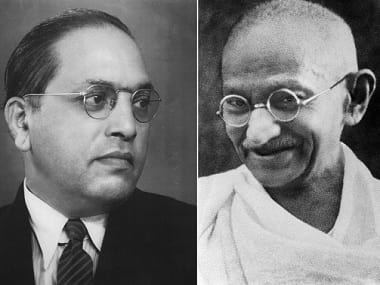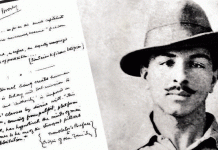EXCERPT
Antonio Francesco Gramsci (22 January 1891 – 27 April 1937) was an Italian Marxist philosopher. He broke away from classical Marxism and introduced a culture of neo-Marxism. His most celebrated works are on the theory of cultural hegemony, intellectuals and education and the critique of materialism. His contributions shaped an alternative tradition in Marxist philosophy. Here is an excerpt from Selections from the Prison Notebooks Antonio Gramsci (1929-1936).

The central argument of Gramsci’s essay on the formation of the intellectuals is simple. The notion of “the intellectuals” as a distinct social category independent of class is a myth. All men are potentially intellectuals in the sense of having an intellect and using it, but not all are intellectuals by social function. Intellectuals in the functional sense fall into two groups.
In the first place there are the “traditional” professional intellectuals, literary, scientific and so on, whose position in the interstices of society has a certain inter-class aura about it but derives ultimately from past and present class relations and conceals an attachment to various historical class formations.
Secondly, there are the “organic” intellectuals, the thinking and organising element of a particular fundamental social class. These organic intellectuals are distinguished less by their profession, which may be any job characteristic of their class, than by their function in directing the ideas and aspirations of the class to which they organically belong. The implications of this highly original schema bear on all aspects of Gramsci’s thought. Philosophically they connect with the proposition (p. 323) that “all men are philosophers” and with Gramsci’s whole discussion of the dissemination of philosophical ideas and of ideology within a given culture. They relate to Gramsci’s ideas on Education (pp. 26-43) in their stress on the democratic character of the intellectual function, but also on the class character of the formation of intellectuals through school. They also underlie his study of history and particularly of the Risorgimento, in that the intellectuals, in the wide sense of the word, are seen by Gramsci as performing an essential mediating function in the struggle of class forces.

Most important of all, perhaps, are the implications for the political struggle. Social Democracy, following Kautsky, has tended to see the relationship between workers and intellectuals in the Socialist movement in formal and mechanistic term, with the intellectuals refugees from the bourgeois class—providing theory and ideology (and often leadership) for a mass base of non-intellectuals, i.e. workers. This division of labour within the movement was vigorously contested by Lenin, who declares, in What is to be Done, that in the revolutionary party “all distinctions as between workers and intellectuals must be obliterated”.
Lenin’s attitude to the problem of the intellectuals is closely connected with his theory of the vanguard party, and when he writes about the need for socialist consciousness to be brought to the working class from outside, the agency he foresees for carrying this out is not the traditional intelligentsia but the revolutionary party itself , in which former workers and former professional intellectuals of bourgeois origin have been fused into a single cohesive unit. Gramsci developed this Leninist schema in a new way, relating it to the problems of the working class as a whole. The working class, like the bourgeoisie before it, is capable of developing from within its ranks its own organic intellectuals, and the function of the political party, whether mass or vanguard, is that of channeling the activity of these organic intellectuals and providing a link between the class and certain sections of the traditional intelligentsia.
The organic intellectuals of the working class are defined on the one hand by their role in production and in the organisation of work and on the other by their “directive” political role, focused on the Party. It is through this assumption of conscious responsibility, aided by absorption of ideas and personnel from the more advanced bourgeois intellectual strata, that the proletariat can escape from defensive corporatism and economism and advance towards hegemony.
Intellectuals and Hegemony
Men are intellectuals, one could therefore say: but not all men have in society the function of intellectuals.
When one distinguishes between intellectuals and non-intellectuals, one is referring in reality only to the immediate social function of the professional category of the intellectuals, that is, one has in mind the direction in which their specific professional activity is weighted, whether towards intellectual elaboration or towards the muscular-nervous effort. This means that, although one can speak of intellectuals, one cannot speak of non-intellectuals, because non-intellectuals do not exist. But even the relationship between efforts of intellectual-cerebral elaboration and muscular-nervous effort is not always the same, so that there are varying degrees of specific intellectual activity. There is no human activity from which every form of intellectual participation can be excluded: homo faber cannot be separated from homo sapiens.
Each man, finally, outside his professional activity, carries on some form of intellectual activity, that is, he is a “philosopher”, an artist, a man of taste, he participates in a particular conception of the world, has a conscious line of moral conduct, and therefore contributes to sustain a conception of the world or to modify it, that is, to bring into being new modes of thought…. It is worth noting that the elaboration of intellectual strata in concrete reality does not take place on the terrain of abstract democracy but in accordance with very concrete traditional historical processes. Strata have grown up which traditionally “produce” intellectuals and these strata coincide with those which have specialised in “saving”, i.e. the petty and middle landed bourgeoisie and certain strata of the petty and middle urban bourgeoisie.
The varying distribution of different types of school (classical and professional) over the “economic” territory and the varying aspirations of different categories within these strata determine, or give form to, the production of various branches of intellectual specialisation. Thus in Italy the rural bourgeoisie produces in particular state functionaries and professional people, whereas the urban bourgeoisie produces technicians for industry. Consequently, it is largely northern Italy which produces technicians and the South which produces functionaries and professional men.
The relationship between the intellectuals and the world of production is not as direct as it is with the fundamental social groups but is, in varying degrees, “mediated” by the whole fabric of society and by the complex of superstructures, of which the intellectuals are, precisely, the “functionaries”. It should be possible both to measure the “organic quality” [organicita] of the various intellectual strata and their degree of connection with a fundamental social group, and to establish a gradation of their functions and of the superstructures from the bottom to the top (from the structural base upwards).
What we can do, for the moment, is to fix two major superstructural “levels” : the one that can be called “civil society”, that is the ensemble of organisms commonly called “private”, and that of “political society” or “the State”. These two levels correspond on the one hand to the function of “hegemony” which the dominant group exercises throughout society and on the other hand to that of “direct domination” or command exercised through the State and ”juridical” government. The functions in question are precisely organisational and connective.
The intellectuals are the dominant group’s “deputies” exercising the sub-altern functions of social hegemony and political government…. The philosophy of praxis does not tend to leave the “simple” in their primitive philosophy of common sense, but rather to lead them to a higher conception of life. If it affirms the need for contact between intellectuals and the simple it is not in order to restrict scientific activity and preserve unity at the low level of the masses, but precisely in order to construct an intellectual-moral bloc which can make politically possible the intellectual progress of the mass and not only of small intellectual groups.
The active man-in-the-mass has a practical activity, but has no clear theoretical consciousness of his practical activity, which nonetheless involves understanding the world in so far as it transforms it.
His theoretical consciousness can indeed be historically in opposition to his activity. One might almost say that he has two theoretical consciousnesses (or one contradictory consciousness) : one which is implicit in his activity and which in reality unites him with all his fellow-workers in the practical transformation of the real world; and one, superficially explicit or verbal, which he has inherited from the past and uncritically absorbed. But this verbal conception is not without consequences. It holds together a specific social group, it influences moral conduct and the direction of will, with varying efficacy but often powerfully enough to produce a situation in which the contradictory state of consciousness does not permit of any action, any decision or any choice, and produces a condition of moral and political passivity.
Critical understanding of self takes place therefore through a struggle of political “hegemonies” and of opposing directions, first in the ethical field and then i that of politics proper, in order to arrive at the working out at a higher level of one’s own conception of reality. Consciousness of being part of a particular hegemonic force (that is to say, political consciousness) is the first stage towards a further progressive self -consciousness in which theory and practice will finally be one. Thus the unity of theory and practice is not just a matter of mechanical fact, but a part of the historical process, whose elementary and primitive phase is to be found in the sense of being “different” and “apart”, in an instinctive feeling of independence, and which progresses to the level of real possession of a single and coherent conception of the world. This is why it must be stressed that the political development of the concept of hegemony represents a great philosophical advance as well as a politico-practical one. For it necessarily supposes an intellectual unity and an ethic in conformity with a conception of reality that has gone beyond common sense and has become, only within narrow limits, a critical conception.
However, in the most recent developments of the philosophy of praxis the exploration and refinement of the concept of the unity of theory and practice is still only at an early stage. There still remain residues of mechanicism, since people speak about theory as a “complement” or an “accessory” of practice, or as the handmaid of practice. It would seem right for this question too to be considered historically, as an aspect of the political question of the intellectuals. Critical self-consciousness means, historically and politically, the creation of an elite of intellectuals. A human mass does not “distinguish” itself, does not become independent in its own right without, in the widest sense, organising itself; and there is no organisation without intellectuals, that is without organisers and leaders, in other words, without the theoretical aspect of the theory-practice nexus being distinguished concretely by the existence of a group of people “specialised” in conceptual and philosophical elaboration of ideas. But the process of creating intellectuals is long, difficult, full of contradictions, advances and retreats, dispersals and regroupings, in which the loyalty of the masses is often sorely tried.
The New Leam has no external source of funding. For retaining its uniqueness, its high quality, its distinctive philosophy we wish to reduce the degree of dependence on corporate funding. We believe that if individuals like you come forward and SUPPORT THIS ENDEAVOR can make the magazine self-reliant in a very innovative way.













